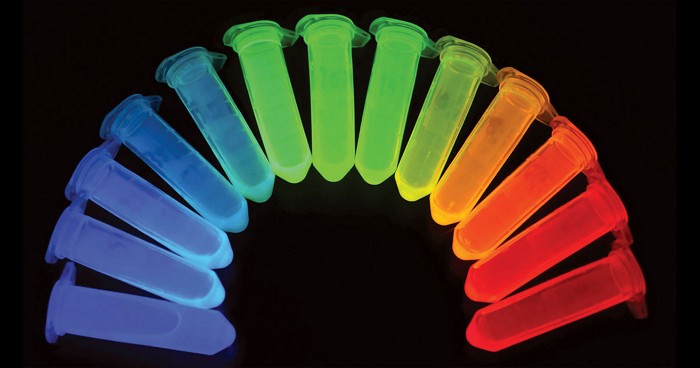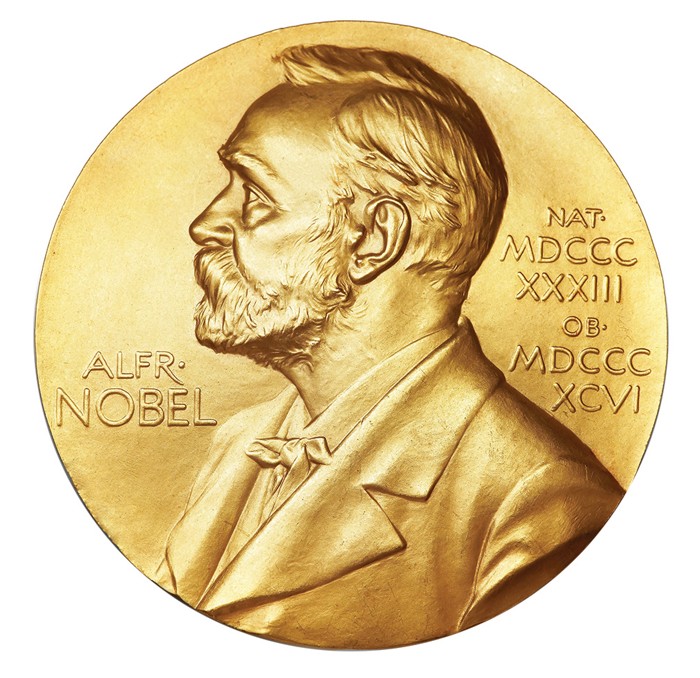Advertisement
Grab your lab coat. Let's get started
Welcome!
Welcome!
Create an account below to get 6 C&EN articles per month, receive newsletters and more - all free.
It seems this is your first time logging in online. Please enter the following information to continue.
As an ACS member you automatically get access to this site. All we need is few more details to create your reading experience.
Not you? Sign in with a different account.
Not you? Sign in with a different account.
ERROR 1
ERROR 1
ERROR 2
ERROR 2
ERROR 2
ERROR 2
ERROR 2
Password and Confirm password must match.
If you have an ACS member number, please enter it here so we can link this account to your membership. (optional)
ERROR 2
ACS values your privacy. By submitting your information, you are gaining access to C&EN and subscribing to our weekly newsletter. We use the information you provide to make your reading experience better, and we will never sell your data to third party members.
Nobel Prize
Chemists predict who will win the 2023 Nobel Prize in Chemistry
C&EN’s annual #ChemNobel prediction webinar votes for mRNA vaccines to win in 2023
by Laura Howes
September 29, 2023
The 2023 Nobel Prize in Chemistry has been awarded to Moungi G. Bawendi, Louis E. Brus and Alexei I. Ekimov for their work on quantum dots. Read our story here.
Nobel Prize season approaches again, and so too do the debates and predictions of who might win. C&EN and ACS Webinars got in on the action again this year, cohosting their annual #ChemNobel predictions webinar on Sept. 28 (ACS publishes C&EN).
This year, C&EN Executive Editor Laura Howes was joined by Robert Root-Bernstein of Michigan State University, Joaquin Barroso-Flores of the National Autonomous University of Mexico, Michael Booth of University College London, and Michelle Muzzio, deputy editor of iScience. As part of the webinar, Root-Bernstein discussed his research into traits shared by many Nobel laureates, including polymathy. That’s something that many in the online audience said they had noticed before.
Following Root-Bernstein’s presentation, the panelists shared their thoughts on who might get a call from Sweden this year before the audience members joined in. For the third year in a row, the work behind mRNA vaccines claimed the top spot with 44% of the audience’s vote, the field of reticular chemistry and metal-organic frameworks (MOFs) came in second place.
In trying to work out likely winners, crystal ball gazers can often turn to other prizes and citation data. For example, Web of Science provider Clarivate published their 2023 citation laureates on Sept. 19. In the field of chemistry, the analytics company tipped James J. Collins, Michael Elowitz and Stanislas Leibler “for pioneering work on synthetic gene circuits,” Shankar Balasubramanian and David Klenerman “for the co-invention of next-generation DNA sequencing methodology,” and Kazunori Kataoka, Vladimir P. Torchilin and Karen L. Wooley “for the development of innovative drug and gene targeting and delivery methods.”
Meanwhile, on social media site X (formerly Twitter) Stuart Cantrill, editorial director at Nature Portfolio and long-term #ChemNobel predictor, ran a poll of his followers. That poll predicted that mRNA vaccines are heading for the win with 44.5% of the votes. Cantrill’s polls have correctly predicted the winners 3 times in the past 5 years.
ChemistryViews, the science news magazine of Chemistry Europe, has also been polling its readers. As of Sept. 29, biochemist Chi-Huey Wong is coming out ahead, along with MOF chemists Omar M. Yaghi and Omar Farha.
At C&EN, our Nobel Prize coverage begins on Oct. 2, with the prize in physiology or medicine, followed by the physics prize on Oct. 3. The final decision for the chemistry prize is only made on the morning of the announcement on Oct. 4. But that doesn’t stop some lighthearted debates amongst chemists in the preceding days. Be sure to check back next week to see if the chemistry prize predictions came true, and to read C&EN’s stories about whichever scientists get the call from Stockholm.
CORRECTION:
This article was updated on Oct. 2, 2023, to note that Twitter is the former, not formal, name of the social media platform X.




Join the conversation
Contact the reporter
Submit a Letter to the Editor for publication
Engage with us on Twitter